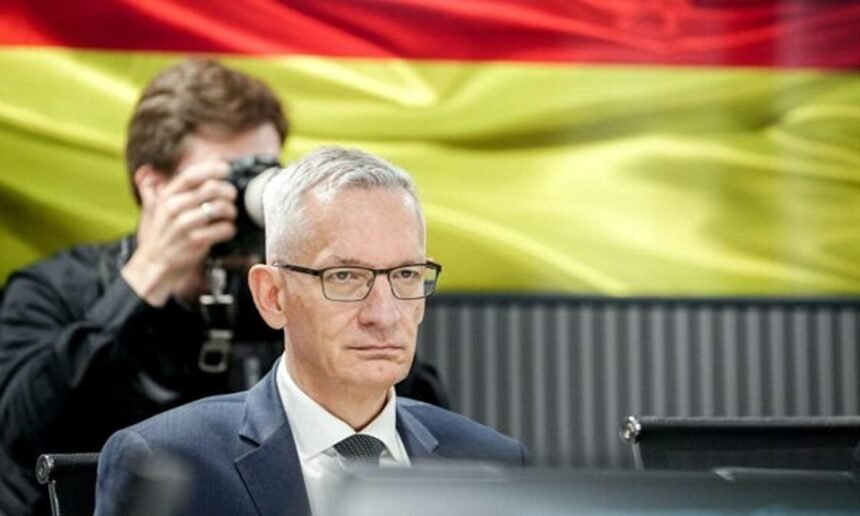Germany’s intelligence chief has issued a stark warning, saying that Russia poses a direct threat and that the current “tense peace” in Europe could erupt at any moment into a “hot confrontation.”
Martin Jaeger, head of Germany’s foreign intelligence service (BND), told lawmakers that Russia is determined to expand its sphere of influence westward into Europe.
“To achieve this goal, Russia will not hesitate to engage in direct military confrontation with NATO if necessary,” Jaeger said during a briefing in Berlin.
He was joined by the heads of Germany’s domestic and military intelligence agencies, who likewise identified Moscow as the primary threat facing Europe today.
Jaeger stressed that Germany is Russia’s number one target in Europe, due to its status as the EU’s largest economy and its leadership role in supporting Ukraine.
The warning follows a series of alarming incidents across the EU — including Russian drone incursions into Poland and airspace violations over Estonia by Russian fighter jets.
In Germany itself, authorities suspect Russia of being behind recent drone intrusions, some of which disrupted operations at Munich Airport.
German security services also believe Moscow is running sabotage and disinformation campaigns across Europe.
Jaeger, a former German ambassador to Kyiv, emphasized that Russia’s ambitions and aggression extend far beyond Ukraine.
“We cannot sit idly by and assume that a potential Russian attack won’t happen before 2029,” he warned, referring to an earlier intelligence estimate. “We are already under fire today.”
He outlined Moscow’s toolkit of hybrid warfare tactics: election interference, propaganda, disinformation, espionage, sabotage, airspace violations, contract killings, and persecution of opposition figures abroad.
Meanwhile, Sinan Selen, head of Germany’s domestic intelligence agency (BfV), said recent drone incidents highlight the “hybrid threat” Russia poses to Germany and its European allies.
“Russia is pursuing its political ambitions against Germany, the EU, and its Western partners with increasing aggressiveness,” Selen said, describing Moscow’s behavior as “ever more escalatory.”
In response, German lawmakers are preparing to revise intelligence laws to strengthen the country’s defensive and counterintelligence capabilities amid the growing Russian threat.







